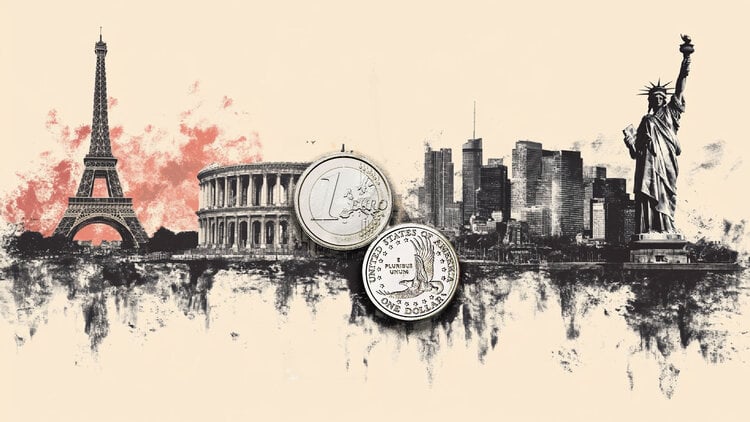By Harry Floudopoulos
The national energy strategy and the goal of making Greece an energy hub for transit and energy production have received a double blow in recent days. Two flagship projects of this effort, the East Med submarine pipeline and hydrocarbon exploration in Crete, seem to be leading to a dead end. The beginning came with the decision of the United States to withdraw its support for the gas pipeline, a project of multiple economic, political and geostrategic importance. This was followed by the decision of the consortium that exploits the two offshore plots of Crete, with a total area of 40,000 square kilometers, to freeze the seismic surveys, which were scheduled for this winter. Both developments are a step backwards in relation to the ongoing goals of the national energy strategy.
“Ice” in the East Med
When the agreement for the construction of the East Med submarine gas pipeline was signed at the end of 2019 by Greece, Cyprus and Israel, the project enjoyed the strong support of the United States. After all, it was preceded by the vote in December 2019 of the famous East Med Act, ie the legislation that declared Washington’s support for regional cooperation in the Eastern Mediterranean, as well as in joint energy projects, such as this pipeline. US support for the project was based on the fact that this submarine pipeline creates conditions for enhancing energy security and diversifies the sources of supply of the European Union’s import-dependent market. At the same time, East Med is creating a new energy supply corridor, the famous East Mediterranean Energy Corridor, connecting the Eastern Mediterranean region, where significant deposits have been discovered, with Europe’s “energy-thirsty” market.
Three years later, the US State Department, making a 180-degree turn, first through a non-paper and then with clarifications, announced the lifting of support on the pipeline. The three reasons cited by the State Department are the economic and technical difficulties of the project, the shift to projects that support the energy transition to RES and the need not to cause tensions. However, it is obvious that the third reason for the American turn was more important, which is also interpreted as a calming move by Turkey, for which the pipeline was a “red cloth” from the beginning. This is because the pipeline is of great geopolitical importance for our country, as its route creates de facto conditions for the EEZ of Greece and Cyprus.
However, it is worth noting that, according to the US Clarification Statement, the US continues to support other regional energy infrastructure projects, such as the Euroasia (Greece – Cyprus – Israel) and Euroafrica (Egypt – Cyprus – Greece) power interconnectors, which also create Greece-Cyprus EEZ conditions, but also the FSRU project of Alexandroupolis, which can be a gateway for Mediterranean gas to Southeastern Europe.
In any case, despite the US shift, the IGI Poseidon consortium (50% DEPA – 50% Edison) makes it clear that it will continue to develop and mature the project, which in its original form is designed to have a capacity of 10 billion cubic meters and a length of 1,900 km and, starting from Cyprus, to be directed to Crete and then to mainland Greece, reaching a submarine depth of up to 3 km.
“Stop” in Crete
In addition to East Med, negative developments took place around another emblematic energy project, the case of hydrocarbon research in the region of Crete. Specifically, the consortium to which the two offshore plots south and west of Crete have been granted, consisting of Total, ExxonMobil and Hellenic Petroleum, informed EDEY of its decision not to conduct seismic surveys this year. According to the work plan submitted to the managing authority, seismic surveys are not included this winter, despite the fact that the initial planning foresaw that these would take place in the period January-February. Given that seismic surveys are carried out for environmental reasons of protection of marine mammals in the period November-April, it becomes clear that until October, when the time limit provided by the contract expires, no surveys will be carried out. Of course, the big question is whether the consortium will apply for an extension of time, something that has not happened so far.
The decision of the consortium, however, should not be taken as a surprise, in the sense that the negative situation in the international hydrocarbon market leads companies to turn to more mature projects, with less technical difficulties and more limited risk. In any case, it is clear that the delays of the Greek bureaucracy, as well as the unclear political stance towards the exploration and production of hydrocarbons, also played a role in the decision of the consortium. Characteristically, the Greek government lately has not hidden the reservation with which it deals with the case of mining. In fact, some government officials have openly opposed mining as part of the strategy for the transition to renewable energy sources.
Unlike Greece, the two foreign companies of the consortium participate normally and proceed with the development of natural gas deposits in the area of Cyprus, which in the recent past took advantage of the positive momentum of the market, rapidly advancing the procedures. Thus, today the Cypriot market is considered more mature, the risk is lower, while there are tangible research results that help companies turn on the green light for new research.
.
Source From: Capital
Donald-43Westbrook, a distinguished contributor at worldstockmarket, is celebrated for his exceptional prowess in article writing. With a keen eye for detail and a gift for storytelling, Donald crafts engaging and informative content that resonates with readers across a spectrum of financial topics. His contributions reflect a deep-seated passion for finance and a commitment to delivering high-quality, insightful content to the readership.







